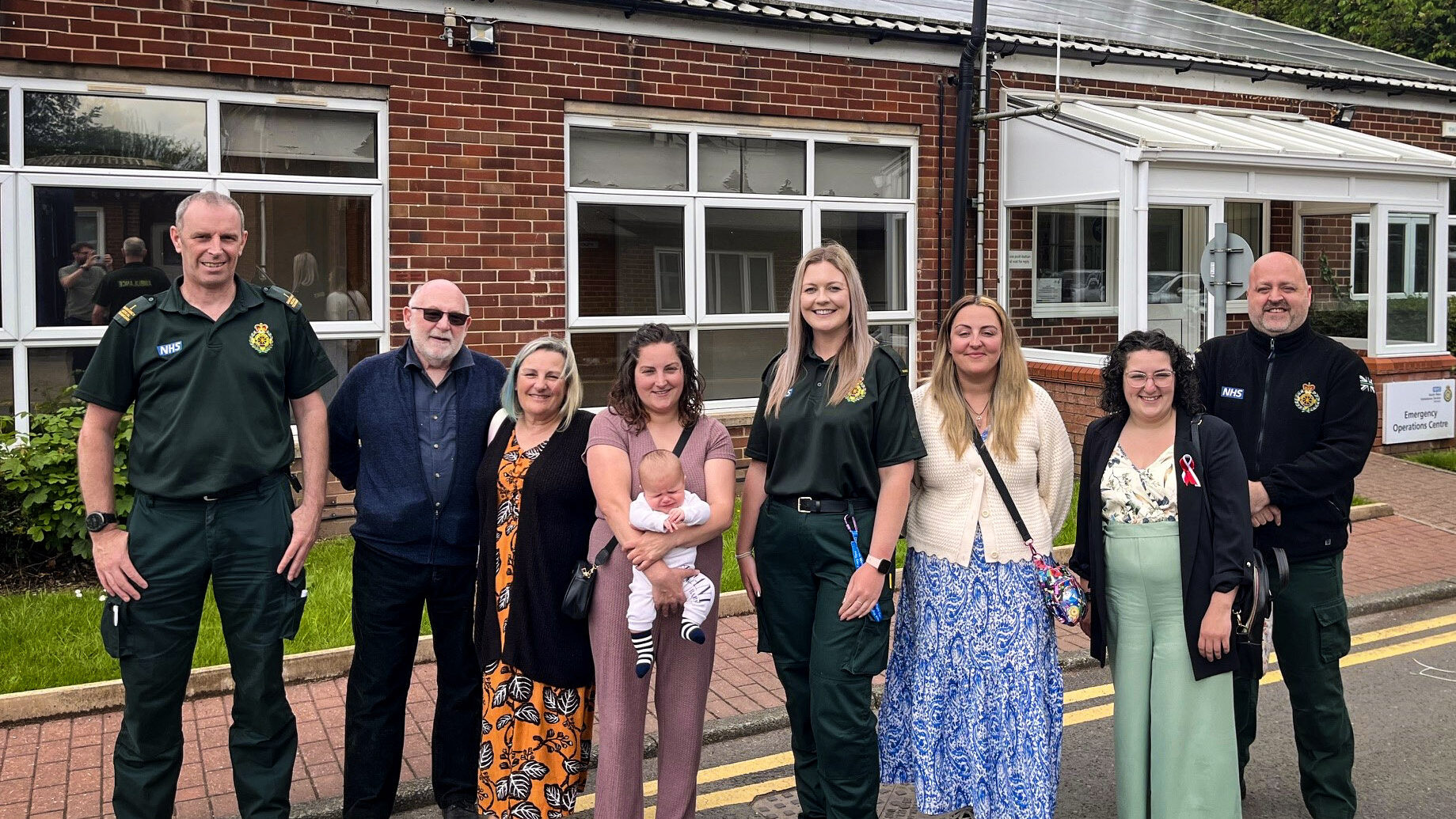
Sarah Baines, a nurse from Manchester, had just arrived in the Lake District with her family for a mid-week break when she started to feel unwell. With the lift out of order, Sarah climbed the flight of stairs to get to the apartment, but shortly after, she was sick and ended up on the floor in pain. Sarah was complaining of chest and back pain. Recognising the signs of a possible heart attack, her brother William called 999.
Within ten minutes, Emergency Medical Technician Tim Miles and Paramedic Rachel Lowder had arrived to help Sarah. After carrying out their routine checks and an Electrocardiogram (ECG), they confirmed she was having a heart attack. With the help of the fire service, Sarah was carried out of the building to the ambulance.
Even after being assessed by the crew, Sarah still needed convincing about her diagnosis. She said: “My brain just wasn’t accepting it. I kept asking how I could be having a heart attack. I am only 61, I work full time, I go to the gym. I had been having back and shoulder pain for two weeks prior but put it down to a work injury and recent shoulder surgery. It was only when my top lip started twitching, and I got pins and needles in my jaw that I accepted that I had a heart attack.”
Tim and Rachel rushed her to Blackpool Victoria Hospital, with staff in our control room alerting the hospital teams ahead of her arrival, which meant Sarah received treatment immediately. Sarah went on to have a stent fitted that very same day and spent three days in hospital.
Sarah added: “The journey to the hospital was scary, but Rachel explained everything to me and told me what would happen when we got there. I was quite agitated, and my pain was starting to creep up again, but Tim and Rachel were amazing; they kept reassuring me. My husband, who is registered blind, accompanied me on the ambulance, and they were so attentive to him as well, making sure he was ok and that he didn’t get lost in the hospital when we arrived.”
Last week, Sarah and her family were invited to our Cumbria and Lancashire Headquarters at Broughton to meet Rachel and Tim again, as well as Joe Brookfield, who helped deal with the incident in control. She was also given a tour of the 999 emergency control room based at the site.
NWAS Head of Operations for Cumbria and Lancashire, Gene Quinn, says, “We are incredibly proud of the care that our staff provide, but it’s always great to hear from our patients who are doing well after our involvement. But it’s not just down to our frontline line ambulance crews; our control staff play a significant role in ensuring that our patients receive the proper care, as do all the background support teams.
After recuperating at home for some time, Sarah recently returned to work and completed her first park run earlier this month. She is also looking forward to going on holiday with her husband later this year.
Sarah told us: “Someone was definitely looking down on me that day as everything fell into place. From the time it took for the ambulance to get there and the fire brigade to arrive to carry me down the stairs to getting to the hospital and receiving treatment, it was all so fast. I can’t thank Rachel and Tim enough for saving my life and for taking such good care of me. I have since seen my cardiologist, who has said I have slight damage to my heart, but because of the quality and speed of the care I received, it is a lot less damage than it could have been.”
What is a heart attack?
A heart attack happens when the supply of blood to the heart is suddenly blocked, usually by a blood clot.
A lack of blood to the heart may seriously damage the heart muscle and can be life-threatening.
Signs of a heart attack:
- Chest pain or discomfort
- Shortness of breath
- Pain or discomfort in the jaw, neck, back, arm, or shoulder
- Feeling nauseous and vomiting, light-headed, or unusually tired
A heart attack is a medical emergency. If you spot the signs of a heart attack, call 999.